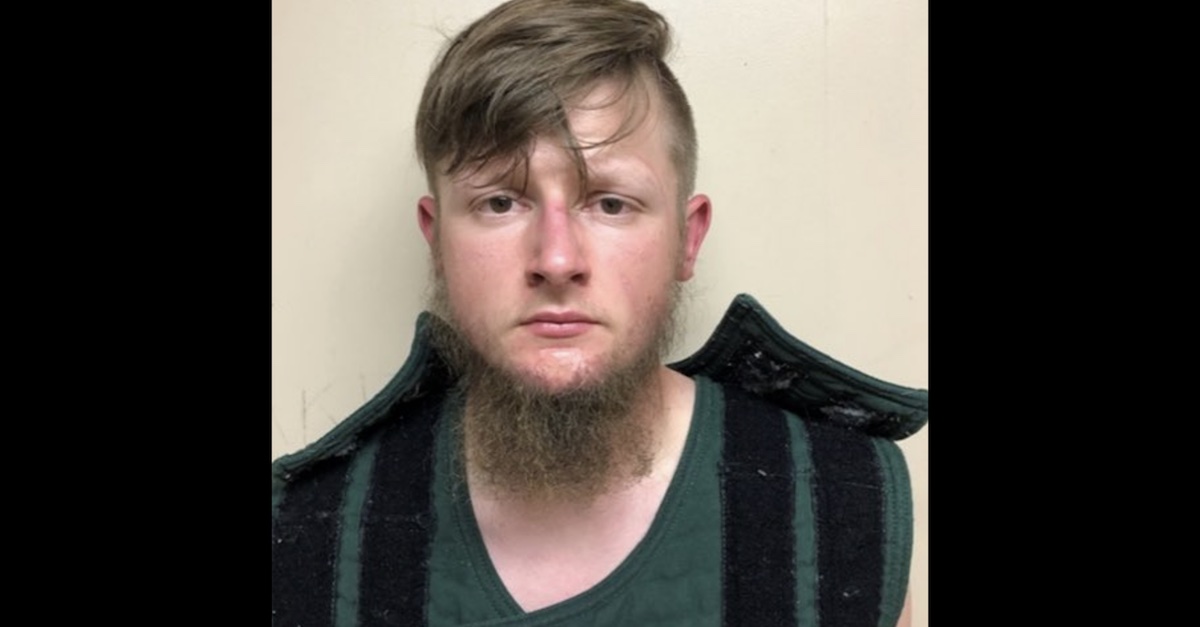
Robert Aaron Long, 21, is now an admitted killer.
On Tuesday morning, the Georgia man pleaded guilty to murdering four of the eight people killed during a day-long spree of violence spread across three separate massage parlors in the Atlanta metropolitan area earlier this year. The defendant’s guilty plea means he will not be eligible for the death penalty over those four admitted murders. At the moment, he still faces the possibility of capital punishment for the deaths of other four people that police and prosecutors say he killed on March 17, 2021.
Because the killings occurred in two separate counties, the defendant was, so far at least, only allowed to plead guilty to the murders committed at one business in Woodstock, Ga.
Cherokee County District Attorney Shannon Wallace appeared to dismiss one standing media narrative that Long’s victims were targeted because of their race. Long is white and six of the eight victims were of Asian descent. Instead, Cherokee County came to the conclusion that the admitted murderer attempted to violently eliminate what he perceived as temptations that fed into his purported sex addiction.
“All of the evidence that was gathered with regard to Cherokee County, your honor, came to the same conclusion, that this crime was not motivated by a bias or hate against Asian Americans,” Wallace explained during a plea hearing.
“Your honor, in discussing this case with Mr. Burns, the defense’s position is that this was not any type of hate crime,” she added later.
Wallace also said, however, that if the defendant had not entered a guilty plea and if the case had gone to trial, her intention was to seek a sentence enhancement under Georgia law based on gender bias.
Police in the county first offered reporters a similar explanation for what spawned the killing spree.
“He apparently has an issue, what he considers a sex addiction, and sees these locations as something that allows him to go to these places and it’s a temptation for him that he wanted to eliminate,” Cherokee County Sheriff’s Captain Jay Baker said at a press conference after the suspect was apprehended and questioned.
One county over, however, that perspective has been rubbished.
In Fulton County, Long faces a 19-count indictment that includes charges of murder and domestic terrorism. Fulton County District Attorney Fani Willis (D) has signaled that she intends to seek the death penalty and a hate crimes sentencing enhancement based on the innate characteristics of the four women who were killed in Atlanta.
“Our investigation is separate from Cherokee County’s investigation; the investigation is slightly different,”Atlanta Deputy Police Chief Charles Hampton, Jr. said the day after the controversial Cherokee County presser where Baker appeared to sympathize with the killer. “We had four Asian females that were killed. And, so, we are looking at everything to make sure that we discover and determine what the motive of our homicides were.”
A grand jury in Cherokee County indicted Long for the murders of Xiaojie “Emily” Tan, 49; Daoyou Feng, 44; Delaina Yaun, 33; and Paul Michels, 54. Those are the killings Long has pleaded guilty to committing.
A Fulton County grand jury indicted the defendant for the murders of Hyun Jung Grant, 51; Soon Chung Park, 74; Suncha Kim, 69; and Yong Ae Yue, 63, based on their “actual or perceived race, national origin, sex, and gender.”
Though the killer’s perceived motivations have sparked sharply contrasting public debate and two separate sets of potential legal consequences in the counties involved, others have cautioned that there may not be much real daylight here. After all, eight people are dead and they were all killed in similar establishments.
State Rep. Bee Nguyen is the first Vietnamese American to serve in the Peach State legislature. She believes the killings occurred at the “intersection of gender-based violence, misogyny and xenophobia.”
[image via mugshot]
Editor’s note: this story has been updated post-publication for clarity, specifically regarding the Cherokee County DA’s perspective on the case.